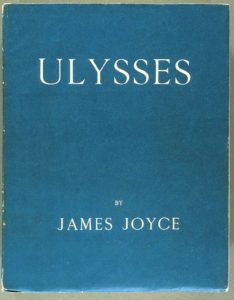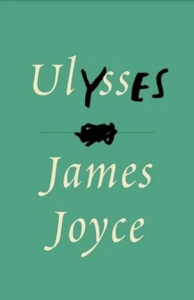
History, Stephen said, is a nightmare from which I am trying to awake.
Happy Bloomsday to all who celebrate!
Did you know that iconic mid-century American literary critic/Nabokov frenemy No. 1 Edmund Wilson reviewed James Joyce’s Ulysses upon its publication in 1922?
You did? Well, good for you.
As Joyce’s magnum opus celebrates its 101st birthday, here’s a look back at Wilson’s New Republic review, in which he deems Ulysses, “for all its appalling longueurs,” a work of genius.
*

“…an ironic and amusing anecdote without philosophic moral … The thing that makes Ulysses imposing is, in fact, not the theme but the scale upon which it is developed. It has taken Mr. Joyce seven years to write Ulysses and he has done it in seven hundred and thirty pages which are probably the most completely ‘written’ pages to be seen in any novel since Flaubert.
…
“…in Joyce you have not only life from the outside described with Flaubertian virtuosity but also the consciousness of each of the characters and of each of the character’s moods made to speak in the idiom proper to it, the language it uses to itself. If Flaubert taught de Maupassant to find the adjective which would distinguish a given hackney-cab from every other hackney-cab in the world, James Joyce has prescribed that one must find the dialect which would distinguish the thoughts of a given Dubliner from those of every other Dubliner.
…
“…these voices are used to record all the eddies and stagnancies of thought; though exercising a severe selection which makes the book a technical triumph, Mr. Joyce manages to give the effect of unedited human minds, drifting aimlessly along from one triviality to another, confused and diverted by memory, by sensation and by inhibition. It is, in short, perhaps the most faithful X-ray ever taken of the ordinary human consciousness.





















































.jpg)





